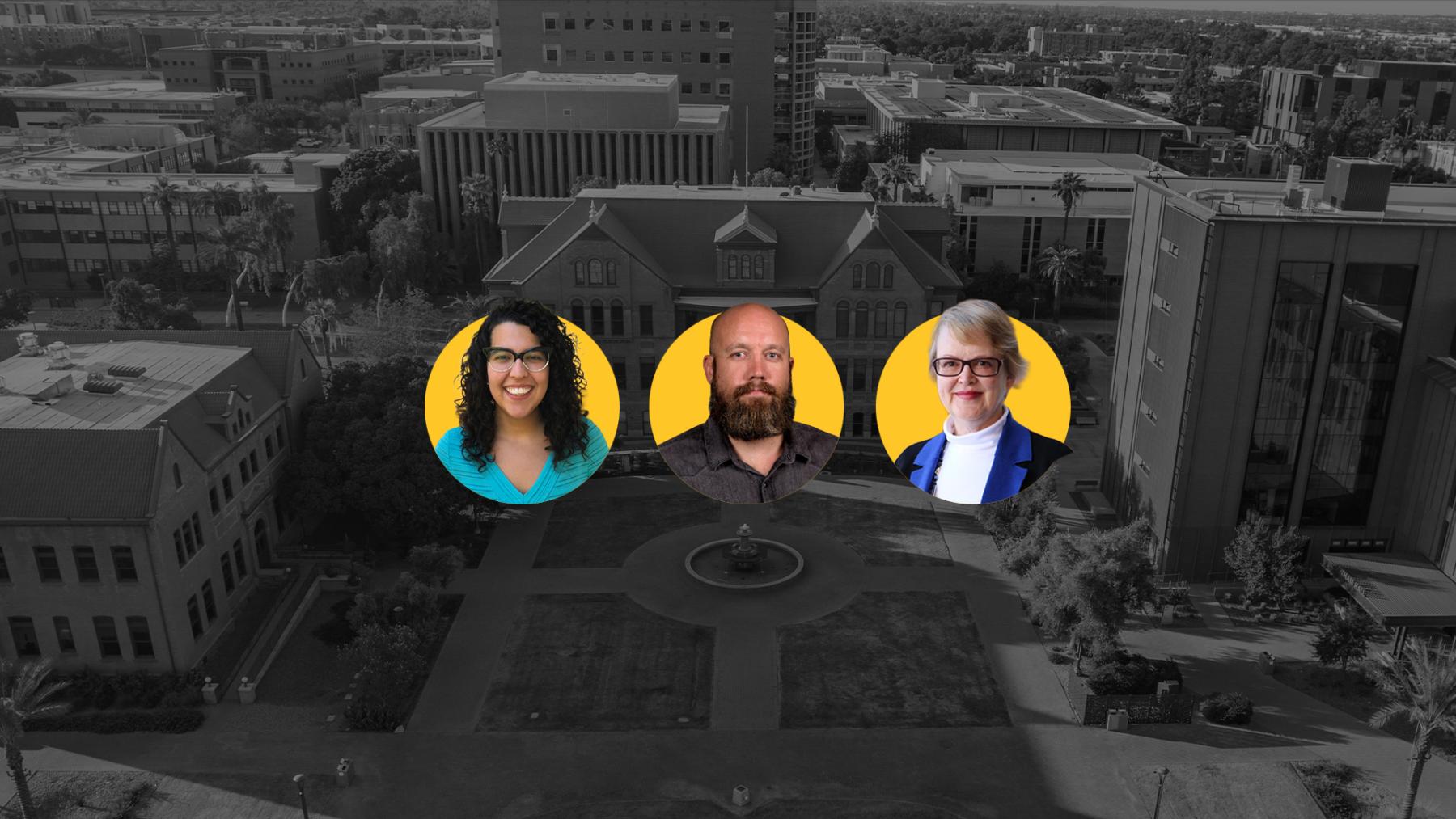
Profiles in the private sector: Lessons from ASU alumni
How does a graduate student get an industry position? What are the expectations of employment in industry?
On Wednesday, November 18, three ASU graduate alumni generously shared their perspectives on transitioning from academia to the private sector. Marci Baranski (2015 graduate in PhD Biology & Society) discussed her current work as a Research Development Associate at Tradewater. James Dankert (2008 graduate in PhD Electrical Engineering) discussed his current role as Director of Experimentation at Apogee Research, LLC. Ryan Ferguson (2014 graduate in PhD Psychology) discussed his current position as Senior Analyst at Houston Astros.
A PhD doesn't mean you are overqualified
You shouldn’t be worried about sharing your credentials or fearing that your degree makes you appear “overqualified”. A PhD says you can think critically, work independently and can finish what you start - skills that are attractive to an employer. Though, you might need to tailor your resume to elucidate the connection of your skills to the job.
This is important for industry positions. Being able to use the right keywords will get your resume through the initial screening process. Questions to ask yourself include:
-
What skills did you develop through your dissertation research? (project management, qualitative or quantitative analysis, writing, etc.)
-
What about skills you have developed while working in the program? (as a Teaching Assistant or Research Assistant)
-
Did you take on any duties for a professional organization or society? (organize a conference, edit conference proceedings, etc.)
You will need to be able to communicate your research to non-researchers
All three alumni are conducting some form of research in their current positions. One thing they share is the need to explain that research to an audience of non-researchers. It’s important to understand what your audience needs to know. As Ferguson described it, he was hired for his ability to devise predictive models, but he needed to be able to consolidate that information into a single number, upon which his employer could make a decision.
Prepare for performance evaluations
As a graduate student you are evaluated on your degree milestones, dissertation research and publications, all of which are on a timeline of years. In the private sector you will be evaluated much more frequently. The pace of work will be accelerated. Dankert suggests asking about performance goals in your interview. It’s valuable information to know and signals your understanding that your job performance will be based on those goals.
While only one of the panelists had planned to go into industry upon graduation, all three expressed satisfaction with their current position. They found their positions through a combination of following their curiosity and networking. Most importantly, they recognized the ways that their academic research could be applied to the needs of the industry in which they are employed.
More stories from the Graduate Insider

Finding your flow: Managing the graduate writing process
Graduate writing can feel like a marathon—long, demanding, and full of unexpected detours. But as Tristan Rebe, Program Manager for the Graduate Writing Center, reminded students in the Grad15: Managing the Writing Process webinar, writing is not about perfection—it’s about progress. “The best dissertation is a done dissertation,” Rebe said, quoting Robert Frost: the best way out is through.

Promoting resilience and well-being in Ghana — and across the globe

From practice to presentation: How to deliver a winning faculty job talk
Giving a job talk can feel like the most high-stakes presentation of your academic job search. It’s not just a research seminar—it’s your opportunity to demonstrate vision, communication skills, and fit within a department. In a recent Lunch and Learn, faculty members Associate Professor in School of International Letters and Cultures, Anita Huizar-Hernandez, Professor in School of Life Sciences Jeffrey Jensen, and Professor in Department of Physics Patricia Rankin shared concrete strategies to help graduate students and postdocs succeed as future faculty candidates.